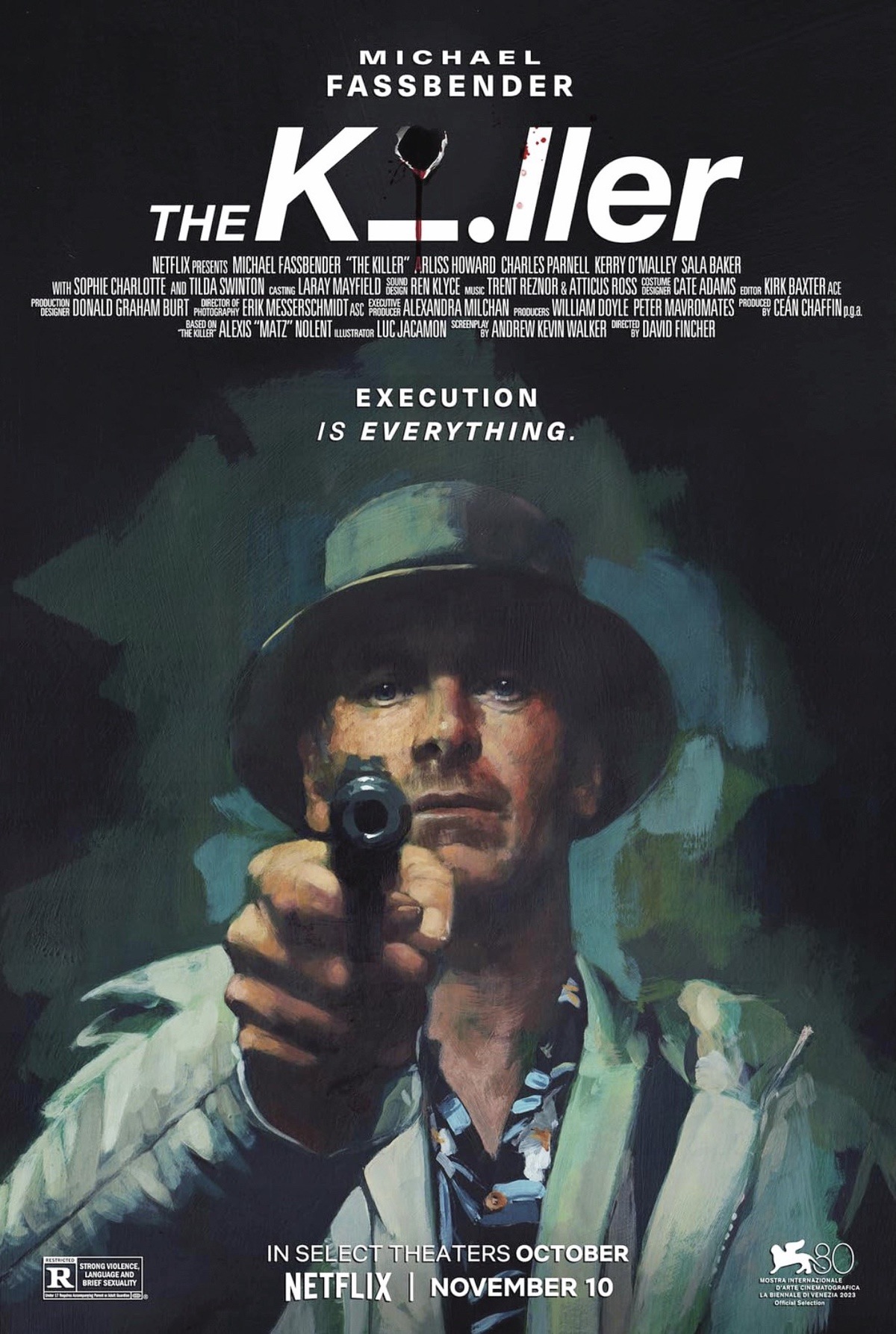
The Killer comes to us from cinema’s Enfant Terriblé, David Fincher. Gone are the more elegant trapping of 2020’s Mank, also on Netflix. Although this could have used some black and white. In recent years, Fincher has opted for a more precise approach to his subjects while still taking his signature jaundiced eye to any given material. However, being based on a French graphic novel, maybe screenwriter Andrew Kevin Walker should have punched up the plot a bit more. As is, this film belies the its origins.
Michael Fassbinder is a great actor, but this role does him little favors. Many have called into question the virtues of stoic performance. Don’t get me wrong; Fassbinder does what he can with is on the page, but the character is as thin as the comic print the story was written on. Our unnamed protagonist is just another carbon-copy contract killer; one who narrates to us. And it is a monologue clearly for the audience, not just his inner thoughts to himself about what he sees or what he thinks of his targets. The direct ‘you’ implies our complicity in his exploits.
After a botched job in Paris, he goes home to the Dominican Republic to find his associates have orchestrated a hit on him and harmed his girlfriend in the process. This simple act kickstarts the plot. From here he takes one mode of transportation to another; yes, Fincher does some globetrotting with us. Minus the glamour of 007, our malicious friend boards coach with one of his many aliases which become cheeky in-jokes. You almost hear the snare hit when an attendant says, “Enjoy your flight, Mr. Unger.” A train ride on Metra to one job made me feel as though I might have been next a would-be assailant. One memorable sequence in St Charles’s Waterfront restaurant only stands out more by Tilda Swinton’s savory yet small role; wished we had more of her.
Fincher is clearly going back to basics here. What was more deliberate in from previous films like Gone Girl have returned to the grimy incandescence of Seven and Fight Club. But whereas the caterwauling action in basements suited the latter, here is feels like he is just spinning wheels. Fassbinder’s assassin should have been reeducating the director instead of us.
Anatomy of a Fall has received an extended run in theaters thanks to its Palm d’Or win at Cannes and great word-of-mouth. Hopefully you all can see it on streaming at some point. Like The Killer, the plot is simple. A husband and father accidentally falls from a third story window at his home to his death on the snowy driveway. Only his wife was in the house. His blind son, who was walking the dog, comes upon the grisly sight. An investigation ensues and his wife Sandra stands accused of murder. A famous writer, a media circus surrounds the court case. But where this would be tabloid fodder for a Law and Order episode, writer/director Justine Triet transforms this into a nesting doll with a relationship at the center. Who were Sandra and husband Samuel? Throughout the trial, that question becomes an Exacto knife to theirs and son Daniel’s lives.
Where each turn in the case is a natural progression of the story, Triet turns the screws on us. A drop of a police dummy becomes an emotional jump-scare; a piano hit turns into an agonizing wail of grief and anger. Kudos goes to Sandra Hüller for her portrayal of a wife and mother that feels both comforting and manipulative, a needle not easily thread. Also, Milo Machado Graner in one of the best child performances I have seen all year, even ever.
It is sad that France opted for another submission to the Oscars, ostensibly a move due to equal use of both English and German along with Triet’s native tongue. If this is still showing somewhere or on streaming, please seek this out. I can’t guarantee pleasant viewing, but certainly a rewarding one.




